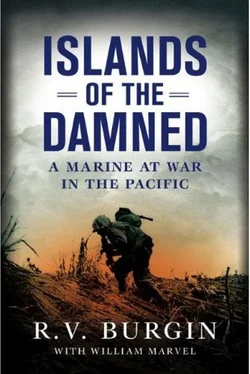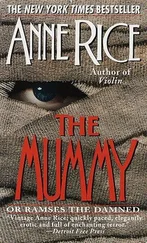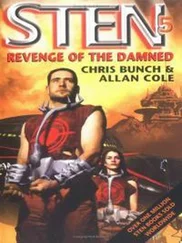One day in the spring of 1942 we had just left Jamestown, North Dakota, heading for Bismarck. We came to a roadside diner and decided to stop for dinner. We were in the back end of the place washing up when two guys came in with guns drawn, one of them the local sheriff. They were looking for “those four guys that was in the Studebaker out there.”
Well, that was us. The sheriff, who had a gimpy leg, deputized somebody right there on the scene, and they drove us in two cars back to Jamestown. Then they locked us up for the night.
I’d been in a jail. When I was in sixth grade, going to that two-room schoolhouse near Jewett, our teacher took a carload of us boys to visit the state penitentiary in Huntsville. I can still hear, walking those aisles with the cells on either side of you, those guys hollering at us, the guards clanging those big steel doors.
On the way home, the teacher said to us, “Boys, you don’t ever want to be in there. You don’t ever want to go to jail.”
And now here I was in jail. For what, I couldn’t even begin to imagine. We didn’t get anything to eat that night. The next morning they brought us cold oatmeal.
We’d ask the jailer whenever he came by, “What’s going on? What’s happening here?”
“You’ll find out soon enough.”
About four o’clock that afternoon they came and let us out. The sheriff ’s wife had made fresh rolls for us, with butter.
We sat there eating them, gratefully.
“Well,” I finally said, “this is the first time I’ve been in jail. Just for the record, what the hell were we in for?”
“First off,” the sheriff said, “you was driving a brand-new Studebaker. And we thought that might not be right. So we were checking for a stolen car.
“And then we thought, that car is registered in Ohio, and you’re up here in North Dakota. So we thought you might be draft dodgers. So it just took time to get all the information that you was okay.”
“Okay,” I said. “That’s all I wanted to know.”
I was twenty, not yet of draft age. But the war had already thrown its shadow across my path.
* * *
My story is the story of hundreds of thousands who fought for our country in World War II. In a way, there’s nothing special about it. In another way, everyone who fights for his or her country has a special story to tell.
In 2004 and 2006 I was asked to present the Old Breed Award for distinguished service in the First Marine Division. At these gatherings there are always five or six World War II vets. The young guys, young Marines, always gather around to hear our stories.
One of them, a mortarman, asked me, “They don’t shoot mortarmen, do they? I mean, you’re always behind the lines.”
“Let me tell you something,” I said. “They don’t discriminate. They shoot anybody. I lost several men to rifle fire. A firefight is a firefight, whether it’s in the South Pacific or Korea or Vietnam or Iraq or Afghanistan.”
But I understood what he meant.
I have a photograph on my wall at home. There we all are, what’s left of K Company, on the beach at Peleliu. We’re waiting for the ship to take us somewhere, anywhere away from the battle. That young mortarman could be any one of us.
I look at that picture today and I think, I don’t remember I was ever that young.
I’d made up my mind that when the draft caught up with me I was going into the Air Force or the Navy or the Marines. Anything but the Army.
I was a year out of high school and the war was on. I’d been on the road with the crew, selling personalized engraved stationery from the company based in Columbus, Ohio. Everywhere we went I saw the Marine recruiting posters in front of post offices. They didn’t show them in their greens. They always had them in dress blues. I thought the Marines looked like a sharp outfit. Disciplined. Elite. I was from a farm. I was used to hard work and discipline. The Army seemed sloppy to me.
Sometimes folks on the road would ask why I wasn’t in the service. The truth was, I wasn’t of draft age. But that was complicated to explain.
So I told them, “I’m going to join the Marines next Friday.” It was always next Friday, no matter what day or week it was. And always the Marines.
When the draft finally did catch me, in September of 1942, our crew was in Kentucky. The notice had arrived several weeks before at my parents’ farm near Jewett. I was ordered to report to the local draft board over in Centerville, the Leon County seat. By now there was no time. So I went to the closest draft board I could find, in Catlettsburg, Kentucky, and explained my situation. They said they couldn’t process me. I pointed out that it was all the same military and the same U.S. government. Why couldn’t they process me and send the papers to my local draft board?
We argued for what seemed like the better part of the day. Finally they gave in and examined me and promised to forward the papers to Centerville. After that I quit selling and went home to the farm and waited. The next notice I got was that I was being drafted into the Army. I was to report November 12 to Centerville.
Instead I went down to Houston on the tenth and bunked overnight with a buddy. The next day the Air Force told me there was a six-week waiting list. The Navy recruiter was a smart aleck. So I walked across the street to the Marine Corps office. They examined me, poked and prodded, and then filled out the forms. But I wasn’t twenty-one yet, and the recruiting sergeant told me I needed written permission from a parent or guardian before I could enlist. I figured I was either in the Marines or I was in trouble with the draft board.
That afternoon the recruiter sent a telegram to my father up on the farm. I spent another night with my friend, then got to the recruiting station the next morning just as the recruiter was turning the key in the lock. We stepped inside together. During the night someone had poked a telegram under the door. It was from Papa: Permission granted.
The Marines fed me breakfast and put me on a train to San Antonio. I may have slept on the train that night; I don’t remember. But I do remember that the next morning, November 13, I was sworn in along with dozens of others, mostly kids like myself from hardscrabble farms and small towns all over south Texas. They fed us breakfast and then put us on another train and shipped us west.
* * *
Our second day out, somewhere beyond El Paso, we got our first taste of life in the United States Marine Corps.
We were in New Mexico or Arizona, I figured, rolling through the desert toward California. The whole train was full of recruits. So were dozens of other trains that day, carrying young guys like me to training camps, bases and ports. The railroaders called them “main trains,” because they had priority over everything else on the track.
There were sixty or so of us in our coach, mostly dozing or staring out the windows. We were still wearing our civilian clothes except for one Marine in uniform. He was sitting three seats back from me and across the aisle, and his armband identified him as an MP. A younger man in street clothes was sitting beside him. I assumed he must be some kind of prisoner, because he was doing his best to give the MP a hard time. His mouth had been going since San Antonio. And he was a jitterbug. Every few minutes, it seemed he had to go to the restroom. He’d jump up and the MP would march him to the end of the coach and wait in the aisle while he finished his business, whatever he was doing in there. Then they’d come back down the aisle to their seats. The fellow would flop down and pretty soon his mouth would be running again. If it wasn’t the restroom it was a drink of water or a smoke or some other thing. He had the whole car on edge.
Читать дальше











